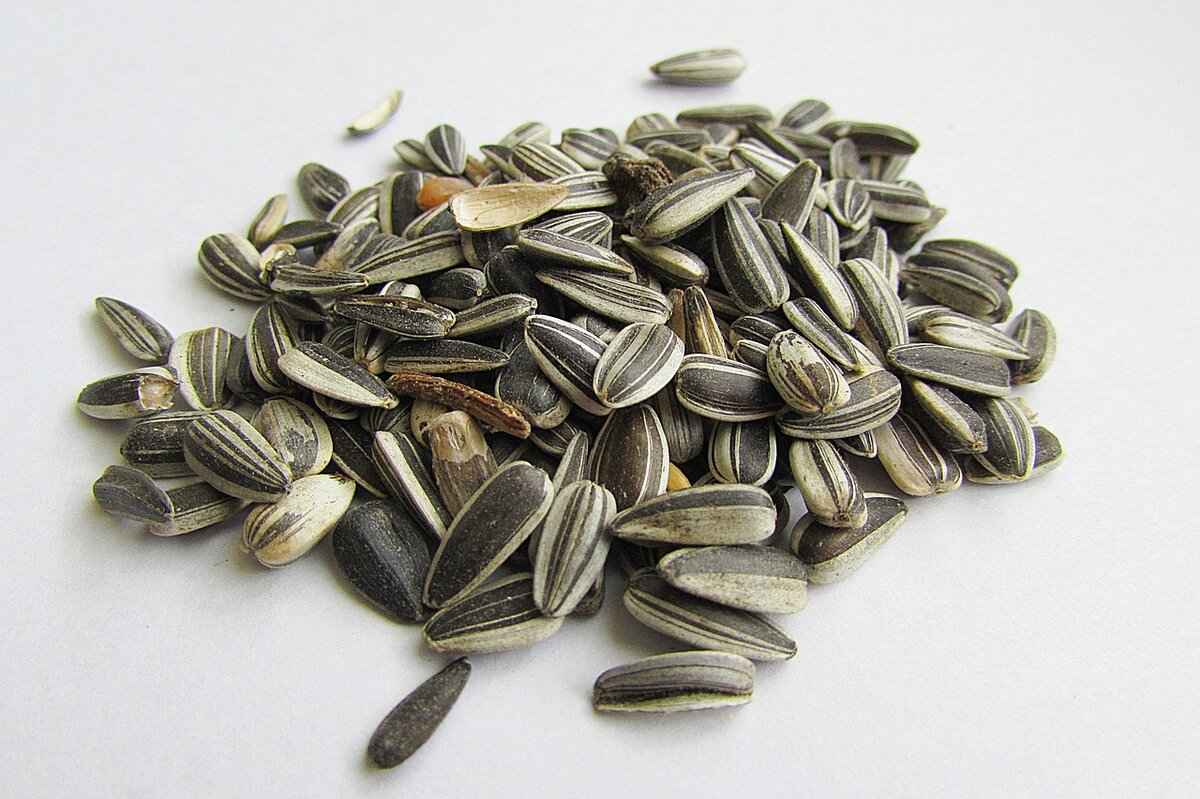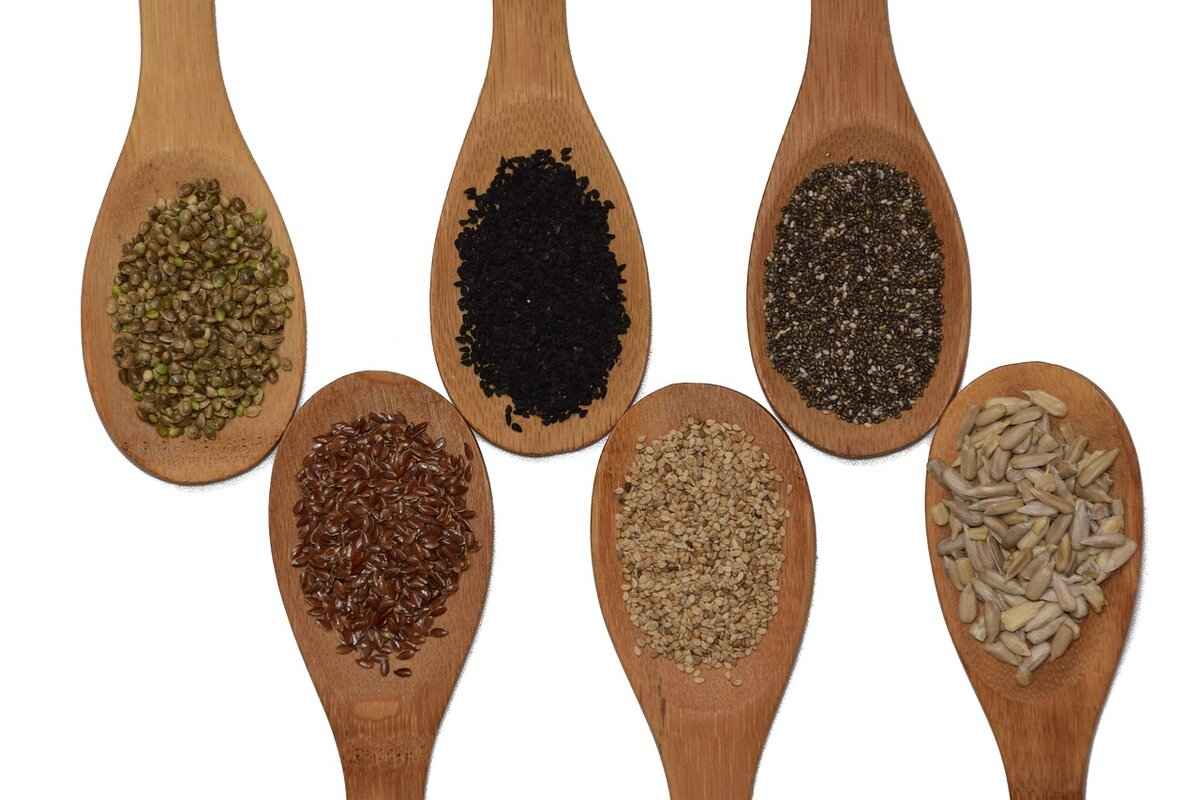Chia seeds have gained immense popularity in recent years, and for good reason. These tiny, nutrient-dense seeds are packed with health benefits that can significantly enhance your overall well-being. This article delves into the numerous health benefits of chia seeds, highlighting their nutritional value, potential health impacts, and practical ways to incorporate them into your daily meals.
Chia seeds are tiny, oval-shaped seeds derived from the Salvia hispanica plant, native to Mexico and Guatemala. These seeds are known for their impressive health benefits and versatility in various diets. They are rich in omega-3 fatty acids, fiber, and protein, making them a popular choice among health enthusiasts.
Chia seeds are often labeled as a superfood due to their high levels of essential nutrients. They contain:
- Omega-3 fatty acids for heart health
- Dietary fiber for digestive support
- Protein for muscle maintenance
- Essential minerals such as calcium, magnesium, and phosphorus
The omega-3 fatty acids present in chia seeds can help lower cholesterol levels and reduce inflammation, promoting overall heart health. Regular consumption may also lower the risk of heart disease.
Chia seeds may assist in weight loss by promoting feelings of fullness and reducing appetite. Their high fiber content absorbs water, expanding in the stomach and leading to a sensation of satiety. This makes them a low-calorie source of essential nutrients that can help manage weight effectively.
Chia seeds are incredibly nutrient-dense. They contain:
- 11 grams of fiber per ounce
- 4 grams of protein per ounce
- 18% of the recommended daily intake of calcium
- 30% of the recommended daily intake of magnesium
This combination of nutrients makes chia seeds a valuable addition to a balanced diet.
Thanks to their high fiber content, chia seeds promote regular bowel movements and support a healthy gut microbiome. The soluble fiber in chia seeds absorbs water, creating a gel-like substance that aids in digestion.
Chia seeds contain essential minerals such as calcium, phosphorus, and magnesium, which are crucial for maintaining strong bones. Regular consumption may help prevent conditions like osteoporosis.
There are numerous ways to add chia seeds to your meals:
- Add them to smoothies for an extra nutrient boost
- Mix them into oatmeal or yogurt
- Sprinkle them on salads for added crunch
- Use them in baked goods as a healthy ingredient
While chia seeds are generally safe for most people, consuming them in excess can lead to digestive discomfort, especially for those not used to high fiber intake. It’s advisable to start with small amounts and gradually increase your intake.
Chia seeds can be found in health food stores, supermarkets, and online retailers. When purchasing, it’s essential to choose high-quality, organic options to maximize their health benefits.

What Are Chia Seeds?
Chia seeds are small, oval-shaped seeds that originate from the Salvia hispanica plant, which is native to Central and South America. These tiny seeds have gained immense popularity in recent years, primarily due to their remarkable nutritional profile and numerous health benefits. Chia seeds are rich in essential nutrients, making them a valuable addition to various diets.
One of the most appealing aspects of chia seeds is their nutrient density. Just a single ounce (about 28 grams) of chia seeds contains approximately:
| Nutrient | Amount per 28g |
|---|---|
| Calories | 137 |
| Protein | 4.4g |
| Fat | 8.6g |
| Carbohydrates | 12g |
| Fiber | 10.6g |
| Calcium | 76mg |
| Magnesium | 95mg |
| Omega-3 Fatty Acids | 5g |
Due to their high content of omega-3 fatty acids, chia seeds are often recommended for promoting heart health. These healthy fats play a crucial role in reducing inflammation and lowering cholesterol levels, contributing to overall cardiovascular wellness. Furthermore, the fiber found in chia seeds can aid digestion and promote a healthy gut, making them an excellent choice for those seeking to improve their digestive health.
Chia seeds are also a fantastic source of plant-based protein, making them an ideal option for vegetarians and vegans. The protein content helps support muscle growth and repair, while the combination of essential amino acids makes chia seeds a complete protein source.
Incorporating chia seeds into your diet is incredibly easy and versatile. They can be added to smoothies, oatmeal, yogurt, or baked goods. Additionally, when soaked in liquid, chia seeds form a gel-like consistency, which can be used as a thickening agent in various recipes or as an egg substitute in vegan cooking.
Despite their many benefits, it’s important to consume chia seeds in moderation. Overconsumption can lead to digestive discomfort, especially for those unaccustomed to high fiber intake. It’s advisable to start with a small amount and gradually increase your intake to allow your body to adjust.
In summary, chia seeds are a nutrient powerhouse that can enhance your diet in numerous ways. With their impressive health benefits, versatile uses, and easy incorporation into meals, they are a valuable addition to any health-conscious individual’s pantry.

Why Are Chia Seeds Considered a Superfood?
Chia seeds have gained immense popularity in recent years, often being referred to as a superfood. This designation stems from their remarkable nutritional profile and the numerous health benefits they offer. Packed with essential nutrients, chia seeds not only enhance overall well-being but also serve as an excellent addition to a balanced diet.
One of the most notable aspects of chia seeds is their high content of omega-3 fatty acids. These healthy fats are crucial for maintaining heart health, as they help lower cholesterol levels and reduce inflammation. In fact, chia seeds are one of the richest plant-based sources of omega-3s, making them a fantastic alternative for those who follow a vegan or vegetarian diet.
Fiber is another key component of chia seeds, with each serving providing a significant amount. This dietary fiber is essential for digestive health, promoting regular bowel movements and supporting a healthy gut microbiome. The soluble fiber in chia seeds also absorbs water, forming a gel-like substance that can help you feel fuller for longer, which may assist in weight management.
In addition to omega-3s and fiber, chia seeds are a great source of protein. They contain all nine essential amino acids, making them a complete protein source. This makes chia seeds an ideal choice for those looking to increase their protein intake without consuming animal products. Furthermore, they are rich in essential minerals like calcium, magnesium, and phosphorus, which are vital for maintaining strong bones and overall health.
The antioxidant properties of chia seeds also contribute to their superfood status. Antioxidants help combat oxidative stress in the body, reducing the risk of chronic diseases and promoting longevity. The presence of antioxidants, combined with their nutrient density, makes chia seeds an excellent choice for those seeking to improve their health.
Another benefit of chia seeds is their versatility in culinary applications. They can be easily incorporated into a variety of dishes, such as smoother and oatmeal, or sprinkled on top of salads and yogurt. Additionally, they can be used as an egg substitute in baking, making them a popular choice for vegans and those with egg allergies.
Despite their numerous benefits, it’s essential to consume chia seeds in moderation. For some individuals, particularly those not accustomed to high fiber intake, excessive consumption may lead to digestive discomfort. It’s advisable to start with small amounts and gradually increase intake to avoid any adverse effects.
In summary, chia seeds are considered a superfood due to their impressive nutritional profile, including high levels of omega-3 fatty acids, fiber, protein, and essential minerals. Their health benefits, combined with their versatility in the kitchen, make them a valuable addition to any diet. By incorporating chia seeds into your meals, you can enhance your overall health and well-being.

How Do Chia Seeds Benefit Heart Health?
Chia seeds, often celebrated as a superfood, offer a plethora of health benefits, particularly for heart health. Their rich content of omega-3 fatty acids plays a pivotal role in promoting cardiovascular wellness. In this section, we will explore how chia seeds contribute to a healthier heart and why they should be a staple in your diet.
What Are Omega-3 Fatty Acids?
Omega-3 fatty acids are essential fats that our body cannot produce on its own, making it crucial to obtain them through diet. Chia seeds are one of the richest plant-based sources of these beneficial fats, specifically alpha-linolenic acid (ALA). Regular consumption of omega-3s is linked to various heart health benefits.
How Do Chia Seeds Lower Cholesterol Levels?
The inclusion of chia seeds in your diet can help lower LDL (bad) cholesterol levels. Studies indicate that the omega-3 fatty acids present in chia seeds can improve lipid profiles by reducing triglycerides and increasing HDL (good) cholesterol levels. This balance is essential for maintaining a healthy heart and reducing the risk of heart disease.
Can Chia Seeds Reduce Inflammation?
Chronic inflammation is a significant risk factor for heart disease. The anti-inflammatory properties of omega-3 fatty acids found in chia seeds can help mitigate this risk. By incorporating chia seeds into your meals, you may help lower inflammatory markers in the body, which contributes to overall heart health.
Do Chia Seeds Promote Healthy Blood Pressure?
Research suggests that omega-3 fatty acids can also play a role in regulating blood pressure. By promoting blood vessel relaxation and improving blood flow, chia seeds can help maintain healthy blood pressure levels. This is particularly beneficial for individuals at risk of hypertension.
How Can You Easily Add Chia Seeds to Your Diet?
- Add chia seeds to your morning smoothie for a nutritious boost.
- Sprinkle them on yogurt or oatmeal for added texture and health benefits.
- Use chia seeds as a thickening agent in soups and sauces.
- Incorporate them into your baking recipes, such as bread or muffins.
Are There Any Side Effects to Consider?
While chia seeds are generally safe for most people, it is crucial to consume them in moderation. Overconsumption can lead to digestive issues due to their high fiber content. It is advisable to start with a small amount and gradually increase your intake to avoid discomfort.
Where to Find Quality Chia Seeds?
Chia seeds can be found in most health food stores, supermarkets, and online retailers. When purchasing, look for high-quality, organic chia seeds to ensure you are getting the best nutritional benefits.
In summary, the omega-3 fatty acids in chia seeds are a powerful ally in promoting heart health. By lowering cholesterol levels, reducing inflammation, and supporting healthy blood pressure, chia seeds are a heart-healthy addition to any diet. Incorporating these tiny seeds into your meals is an easy and effective way to enhance your overall cardiovascular wellness.

Can Chia Seeds Aid in Weight Loss?
Chia seeds have gained significant attention in the health and wellness community, particularly for their potential role in weight management. These tiny seeds, packed with nutrients, offer a variety of benefits that can assist individuals looking to shed pounds. In this section, we will explore how chia seeds may aid in weight loss through various mechanisms.
One of the primary ways chia seeds contribute to weight loss is by promoting a sense of fullness. When chia seeds are mixed with liquid, they absorb up to 12 times their weight, forming a gel-like consistency. This property can help slow down the digestion process, leading to prolonged feelings of satiety. A study published in the Journal of Nutrition found that incorporating chia seeds into meals can significantly reduce overall calorie intake by curbing hunger.
In addition to promoting fullness, chia seeds may also play a role in appetite regulation. The high fiber content in chia seeds helps to stabilize blood sugar levels, preventing spikes that can lead to cravings and overeating. By keeping hunger at bay, individuals may find it easier to stick to their dietary goals, ultimately supporting weight loss efforts.
Chia seeds are an excellent source of essential nutrients while being relatively low in calories. A typical serving of chia seeds (about 28 grams or 1 ounce) contains approximately 138 calories, along with 11 grams of fiber and 4 grams of protein. This nutrient density makes them an ideal addition to meals without significantly increasing caloric intake. By incorporating chia seeds into a balanced diet, individuals can enjoy a variety of nutrients while managing their weight effectively.
There are countless ways to add chia seeds to your meals. Here are a few practical ideas:
- Smoothies: Blend chia seeds into your favorite smoothie for added texture and nutrition.
- Overnight Oats: Mix chia seeds with oats and your choice of milk or yogurt for a filling breakfast.
- Salads: Sprinkle chia seeds over salads for a nutritious crunch.
- Baked Goods: Incorporate chia seeds into muffins, bread, or energy bars for a healthy boost.
While chia seeds are generally safe for most people, it is essential to consume them in moderation. The high fiber content can cause digestive discomfort, especially for individuals who are not accustomed to a fiber-rich diet. It is advisable to gradually introduce chia seeds into your meals and ensure adequate hydration to prevent any gastrointestinal issues.
In summary, chia seeds can be a valuable ally in weight loss efforts. Their ability to promote fullness, regulate appetite, and provide essential nutrients makes them a smart addition to any weight management plan. By incorporating chia seeds into your diet in various delicious ways, you can enhance your overall nutrition while working towards your weight loss goals.

What Nutrients Are Found in Chia Seeds?
Chia seeds are a powerhouse of nutrition, offering an impressive array of essential nutrients that can significantly enhance your overall health. These tiny seeds, derived from the Salvia hispanica plant, are not only versatile but also packed with numerous health benefits. In this section, we will delve deeper into the vital nutrients found in chia seeds and how they contribute to a balanced diet.
Chia seeds are often hailed as a superfood due to their rich nutritional profile. Here’s a breakdown of the key nutrients they offer:
- Fiber: Chia seeds are exceptionally high in dietary fiber, with about 11 grams of fiber per ounce (28 grams). This high fiber content aids in digestion, promotes regular bowel movements, and helps maintain a healthy gut microbiome.
- Protein: These seeds are a good source of plant-based protein, containing approximately 4 grams of protein per ounce. This makes them an excellent addition to vegetarian and vegan diets.
- Omega-3 Fatty Acids: Chia seeds are one of the richest plant sources of omega-3 fatty acids, particularly alpha-linolenic acid (ALA), which is known for its heart-protective properties.
- Calcium: Just one ounce of chia seeds provides about 18% of the recommended daily intake of calcium, which is essential for maintaining strong bones and teeth.
- Magnesium: Chia seeds also contain a significant amount of magnesium, with around 24% of the daily value in one ounce. Magnesium plays a crucial role in over 300 biochemical reactions in the body.
- Antioxidants: Rich in antioxidants, chia seeds help combat oxidative stress and inflammation, contributing to overall health and longevity.
The combination of these nutrients makes chia seeds a valuable addition to any diet. Their high fiber content not only supports digestive health but also helps regulate blood sugar levels, making them beneficial for individuals managing diabetes. The protein and omega-3 fatty acids in chia seeds can enhance heart health by reducing cholesterol levels and inflammation.
Moreover, chia seeds are incredibly versatile and can be easily incorporated into various meals. You can sprinkle them on salads, blend them into smoothies, or use them as a thickening agent in puddings and baked goods. Their ability to absorb liquid and form a gel-like consistency also makes them a popular choice for vegan recipes as an egg substitute.
In conclusion, chia seeds offer an impressive range of nutrients that can significantly contribute to a balanced and healthy diet. Their combination of fiber, protein, essential fatty acids, and minerals makes them a superfood that supports various aspects of health, from digestive wellness to heart health. Incorporating chia seeds into your daily meals can be a simple yet effective way to boost your nutrient intake and promote overall well-being.

How Do Chia Seeds Support Digestive Health?
Chia seeds have gained significant attention in the health and wellness community, primarily due to their remarkable nutritional profile and health benefits. One of the most notable advantages of incorporating chia seeds into your diet is their ability to support digestive health. This article delves into how these tiny seeds can enhance your digestive system and promote overall gut health.
Chia seeds are exceptionally high in dietary fiber, containing around 10 grams of fiber per ounce. This high fiber content plays a crucial role in promoting regular bowel movements. When consumed, chia seeds absorb water and expand, forming a gel-like substance that helps to bulk up stool and facilitate its passage through the digestive tract.
- Promotes Regularity: The soluble fiber in chia seeds helps to regulate bowel movements, preventing constipation and promoting a healthy digestive rhythm.
- Supports Gut Microbiome: Fiber acts as a prebiotic, feeding the beneficial bacteria in your gut. A healthy gut microbiome is essential for optimal digestion and overall health.
- Reduces Digestive Discomfort: By promoting a healthy digestive process, chia seeds can help alleviate symptoms like bloating and gas.
The gel-like consistency of chia seeds when mixed with liquid not only aids in digestion but also helps to create a protective barrier in the digestive tract. This barrier can help reduce inflammation and irritation, contributing to a healthier gut lining. Furthermore, the omega-3 fatty acids present in chia seeds have been shown to have anti-inflammatory properties, which can further support gut health.
Incorporating chia seeds into your diet is easy and versatile. Here are some practical suggestions:
- Soaked Chia Pudding: Mix chia seeds with your favorite milk or yogurt and let them soak overnight. This creates a delicious pudding that is high in fiber.
- Smoothies: Add a tablespoon of chia seeds to your morning smoothie for an extra fiber boost.
- Salads and Soups: Sprinkle chia seeds on salads or stir them into soups for added texture and nutrition.
While chia seeds offer numerous digestive benefits, it’s essential to consume them in moderation. For those who are not accustomed to a high-fiber diet, introducing chia seeds gradually can help prevent potential digestive discomfort. Always ensure adequate hydration when consuming fiber-rich foods to support digestion.
In summary, the high fiber content in chia seeds is a powerful ally for maintaining digestive health. By promoting regular bowel movements and supporting a healthy gut microbiome, chia seeds can contribute to overall well-being. With their versatility and ease of incorporation into various meals, adding chia seeds to your diet could be a simple yet effective way to enhance your digestive health.

Are Chia Seeds Good for Bone Health?
Chia seeds are not just a trendy health food; they are a powerhouse of nutrients that can significantly contribute to your overall well-being. Among their many benefits, one of the most notable is their positive impact on bone health. This article delves into how chia seeds can support strong bones and help prevent conditions such as osteoporosis.
Chia seeds are rich in essential minerals that play a vital role in maintaining bone density and strength. These tiny seeds are packed with calcium, phosphorus, and magnesium, each of which is crucial for healthy bone development and maintenance.
Calcium is perhaps the most well-known mineral when it comes to bone health. It is essential for the formation of bone tissue. A single ounce of chia seeds contains about 18% of the recommended daily intake of calcium. This makes chia seeds an excellent option for those who are lactose intolerant or prefer plant-based sources of calcium.
Phosphorus works closely with calcium to help build and maintain strong bones. It forms part of the mineral matrix that gives bones their strength. Chia seeds provide a significant amount of phosphorus, contributing to the overall mineral balance necessary for optimal bone health.
Magnesium plays a multifaceted role in bone health. It helps convert vitamin D into its active form, which is crucial for calcium absorption. In addition, magnesium contributes to the structural development of bones. Chia seeds are an excellent source of magnesium, offering about 23% of the daily value in just one ounce.
Osteoporosis is a condition characterized by weak and brittle bones, making individuals more susceptible to fractures. By incorporating chia seeds into your diet, you can help ensure that your body receives adequate amounts of calcium, phosphorus, and magnesium. These minerals work synergistically to promote bone health and may reduce the risk of developing osteoporosis, especially in older adults.
Adding chia seeds to your meals is simple and versatile. Here are some practical ways to include them:
- Smoothies: Blend chia seeds into your morning smoothie for an added nutrient boost.
- Oatmeal: Sprinkle chia seeds on top of your oatmeal or mix them in for extra texture.
- Baked Goods: Add chia seeds to muffins, bread, or pancakes for enhanced nutrition.
- Salads: Toss chia seeds into salads for a crunchy texture and added health benefits.
While chia seeds are generally safe for most people, it is essential to consume them in moderation. Overconsumption can lead to digestive discomfort, especially for those who are not accustomed to high-fiber foods. Always ensure you drink plenty of water when consuming chia seeds to help them expand and aid digestion.
In summary, chia seeds offer a wealth of benefits for bone health, thanks to their rich mineral content. By incorporating these nutrient-dense seeds into your diet, you can take a proactive step towards maintaining strong bones and preventing osteoporosis.

How Can You Incorporate Chia Seeds into Your Diet?
Chia seeds are a versatile and nutritious addition to any diet, offering a range of health benefits. If you’re wondering how to incorporate chia seeds into your meals, you’re in the right place! Here are some creative and delicious ways to enjoy these tiny powerhouses.
One of the easiest ways to add chia seeds to your diet is by blending them into smoothies. Simply add a tablespoon of chia seeds to your favorite smoothie recipe. They not only enhance the nutritional value but also create a satisfying texture. The seeds absorb liquid, giving your smoothie a thicker consistency.
Chia seeds can be sprinkled on top of your morning oatmeal or stirred in while cooking. This addition adds a nice crunch and boosts the fiber content, helping you feel full longer. For an extra treat, consider soaking the chia seeds overnight in your milk of choice for a creamier texture.
Transform your salads by incorporating chia seeds. They can be used as a topping or mixed into dressings. Their subtle flavor won’t overpower your dish, but they will add a delightful crunch and a nutritional punch. Try mixing them with olive oil, lemon juice, and herbs for a refreshing dressing.
Chia seeds can be seamlessly integrated into baked goods such as muffins, breads, and cookies. Substitute a portion of the flour with ground chia seeds or add whole chia seeds to the mix. This not only enriches the flavor but also increases the fiber and nutrient content of your baked treats.
Create a delicious and healthy dessert by making chia pudding. Mix chia seeds with your choice of milk and a sweetener, and let it sit for a few hours or overnight. The seeds will swell and create a pudding-like texture. Top with fruits, nuts, or granola for a delightful treat.
Add chia seeds to your favorite soups and stews as a thickening agent. They will absorb liquid and help create a heartier dish while providing additional nutrients. Just remember to allow some time for the seeds to absorb the liquid before serving.
Homemade energy bars are a fantastic way to incorporate chia seeds. Combine nuts, oats, honey, and chia seeds for a quick snack that provides lasting energy. These bars are perfect for on-the-go snacking and can be customized with your favorite ingredients.
Mix chia seeds into your morning yogurt for a nutritious boost. They add texture and enhance the health benefits of yogurt, making it more filling and satisfying. Top with fruits and nuts for a well-rounded breakfast or snack.
Incorporating chia seeds into your diet is not only easy but also beneficial for your health. With their versatility, you can enjoy these seeds in various meals throughout the day, enhancing both nutrition and flavor. Start experimenting with these ideas and discover the many ways chia seeds can enrich your meals!

What Are the Potential Side Effects of Chia Seeds?
Chia seeds are celebrated for their numerous health benefits, but like any food, they can have potential side effects when consumed inappropriately. Understanding these effects is essential for anyone considering adding chia seeds to their diet.
While generally safe for most individuals, chia seeds can lead to digestive discomfort, especially when consumed in large quantities. This is particularly true for those who are not accustomed to a high-fiber diet. The seeds are rich in fiber, providing about 11 grams of fiber per ounce, which can be beneficial for digestive health but may also cause issues if introduced too quickly.
- Digestive Issues: Overconsumption of chia seeds can result in bloating, gas, and abdominal pain. This is largely due to their high fiber content, which can overwhelm the digestive system if not introduced gradually.
- Choking Hazard: Chia seeds can absorb up to 12 times their weight in water. If consumed dry, they may expand in the throat, posing a choking risk. It is essential to soak them in liquid before consumption to avoid this.
- Allergic Reactions: Although rare, some individuals may experience allergic reactions to chia seeds. Symptoms can include rashes, itching, or difficulty breathing. If you have a history of allergies to seeds, proceed with caution.
- Blood Thinning Effects: Chia seeds are high in omega-3 fatty acids, which can have blood-thinning effects. Individuals on anticoagulant medications should consult with their healthcare provider before adding chia seeds to their diet.
To mitigate these potential side effects, it is advisable to start with a small amount of chia seeds, such as one tablespoon per day, and gradually increase the intake while monitoring your body’s response. Additionally, drinking plenty of water can help the fiber in chia seeds move smoothly through your digestive system.
For those new to high-fiber foods, it’s crucial to adjust your diet slowly. Incorporating chia seeds as part of a balanced diet, alongside other sources of fiber, can help your body adapt without adverse effects. Always ensure that you are consuming chia seeds in moderation and in a manner that suits your individual health needs.
In summary, while chia seeds offer numerous health benefits, it is important to be aware of their potential side effects. By understanding these risks and taking appropriate precautions, you can safely enjoy the advantages of chia seeds in your diet.

Where to Buy Quality Chia Seeds?
When it comes to incorporating chia seeds into your diet, knowing where to purchase high-quality seeds is crucial. These tiny seeds, known for their numerous health benefits, can be found in various places, but not all options are equal. Below, we will explore the best places to buy chia seeds and what to look for to ensure you are getting the best product possible.
Health food stores are often the best places to find organic chia seeds. These stores typically prioritize quality and offer a range of options, including bulk bins and packaged seeds. When shopping at a health food store, look for:
- Organic Certification: Ensure the seeds are certified organic to avoid pesticides and chemicals.
- Packaging: Choose seeds that are stored in airtight containers to maintain freshness.
- Reputation: Purchase from stores that have a good reputation for sourcing high-quality products.
Many supermarkets now carry chia seeds, making them easily accessible for most people. When buying from a supermarket, consider the following tips:
- Brand Awareness: Stick to well-known brands that specialize in health foods.
- Check the Ingredients: Look for products that list only chia seeds without additives or preservatives.
- Expiration Date: Always check the expiration date to ensure freshness.
Online shopping offers a vast selection of chia seeds, often at competitive prices. Here are some benefits and tips for buying chia seeds online:
- Variety: You can find different types of chia seeds, including black and white varieties.
- Customer Reviews: Read reviews to gauge the quality of the product and the seller’s reliability.
- Bulk Buying: Consider purchasing in bulk to save money and ensure you always have chia seeds on hand.
For those who prefer to support local businesses, farmers’ markets can be an excellent source for chia seeds. Buying from local vendors allows you to:
- Ask Questions: Inquire about the farming practices and source of the seeds.
- Support Local Farmers: Help sustain local agriculture and promote the economy.
- Freshness: Get seeds that may be fresher than those found in stores.
Regardless of where you choose to buy your chia seeds, there are essential factors to consider to ensure you are getting a quality product:
- Color: High-quality chia seeds should be shiny and have a consistent color.
- Smell: Fresh chia seeds should have a mild, nutty aroma. Avoid seeds with a rancid or off smell.
- Texture: The seeds should feel firm and not sticky or clumpy.
In conclusion, purchasing quality chia seeds is essential for maximizing their health benefits. Whether you shop at health food stores, supermarkets, online retailers, or farmers’ markets, being informed about what to look for will help you make the best choice. Incorporating high-quality chia seeds into your diet can lead to numerous health benefits, making them a worthy addition to your pantry.
Frequently Asked Questions
- What are the health benefits of chia seeds?
Chia seeds are packed with omega-3 fatty acids, fiber, protein, and essential minerals. They can help improve heart health, support digestion, and even assist in weight loss by keeping you feeling full longer.
- How can I add chia seeds to my diet?
You can sprinkle chia seeds on your smoothies, mix them into oatmeal, add them to salads, or even incorporate them into baked goods. They’re super versatile!
- Are there any side effects of consuming chia seeds?
While chia seeds are generally safe, consuming them in excess can lead to digestive discomfort, especially for those not used to high fiber diets. Moderation is key!
- Where can I buy quality chia seeds?
You can find chia seeds in health food stores, supermarkets, and online. Just be sure to look for high-quality, organic options to get the most health benefits.
- Do chia seeds really help with weight loss?
Yes! Chia seeds can help with weight loss by promoting feelings of fullness, which may reduce your overall calorie intake. Plus, they’re low in calories but high in nutrients!














